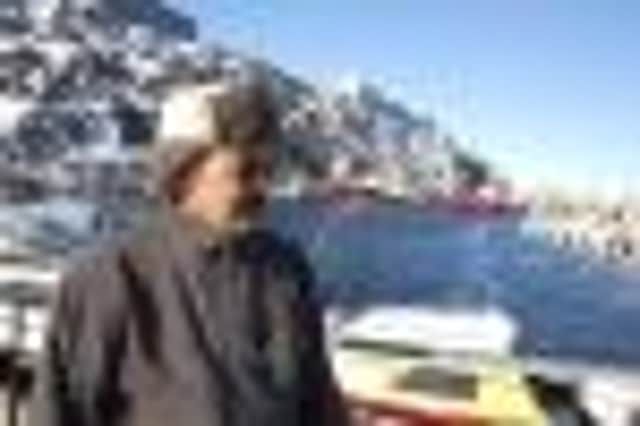Greeland election becomes ‘vote on foreign investments’


A verdict on the country’s transformation comes today, when the island – which is a quarter of the size of the continental United States but has only 57,000 mostly Inuit inhabitants – holds a general election.
There is only one polling station in the capital, Nuuk, which has just two traffic lights and where hunting is still the most popular pastime. But the vote may pack a global punch.
Advertisement
Hide AdAdvertisement
Hide AdAfter four years of Mr Kleist – a quiet-spoken musician known as “Greenland’s Leonard Cohen” for his gravelly voice – the vote is effectively a referendum on how far the country embraces international mining companies, energy giants, and foreign workers.
At stake may be Greenland’s growing geopolitical role as global warming and the thawing of sea ice open up new sea lanes, minerals and oil fields – drawing the interest of world powers from China to the US.
“There is a growing nationalist backlash. It’s not a nice thing to see,” Mr Kleist, 54, said. “The fear of being overrun by foreigners is exaggerated. We are becoming a global player. We need to avoid ethnicity, nationalistic feelings.”
The campaign has seen a split between Mr Kleist and an opposition linked to traditional Greenlanders like fishermen and hunters, who feel he has gone too far in welcoming foreign companies. There are calls for more taxes on foreign firms, growing suspicions about Chinese mining investments, demands for more environmental safeguards and even anti-colonial rhetoric to limit the use of the Danish language.
Opposition leader Aleqa Hammond said: “People feel that they are not part of the decision-making process of big-scale projects and mining. Where is the voice of the people?
Hammond also grew up in a remote village. Her father died when she was young after he fell through ice while hunting. She says her family tried to make her marry a hunter, but she refused. Now she has a good chance of being the next prime minister.
If elected, she would introduce royalties for mining companies and revise a law that effectively allows big mining firms to employ thousands of foreign workers for project construction.
Since Greenland won self-governance in 2009 – other than for defence and security – most politicians have aimed for growing autonomy and eventual independence. The more revenues from mining or oil, the more Greenland weans itself off Denmark’s annual grant, which currently accounts for more than half the island’s budget.
Advertisement
Hide AdAdvertisement
Hide AdIn Mr Kleist’s gleaming new offices in Nuuk, Danish civil servants sip cappuccinos, huddle over computer screens and plot policies from finance to mining regulations. Greenlanders mention the symbolism of an executive and its staff whose offices sit over Nuuk’s lone shopping mall.
Not one mining or oil project has got off the ground yet, but more than 100 exploration licences have been awarded.
There are large deposits of rare earths, used in products from wind turbines to hybrid cars. There are hopes for gold and zinc, and officials say oil reserves may be equivalent to as much half the entire North Sea.
Central to the debate in Greenland is a $2.3 billion (£1.54bn) project for an iron ore mine by British-headquartered London Mining near a fiord in Nuuk. It may involve diesel power plants, a road and port, and would supply China with iron to fuel its economy.
About 2,000 Chinese workers – the equivalent of around 4 per cent of Greenland’s population – could fly in for its construction, touching nerves in a country where unemployment is rising.
Johannes Heilmann, 64, grew up hunting for whales, and still fishes with a 19ft long boat – the industry accounts for 90 per cent of Greenland’s exports.
Mr Heilmann complains about fishing quotas, and how cheaper foreign produce is pushing out local food.
He also worries about the London Mining project – he fears any spill from the iron ore ships could destroy fishing.
“No matter how much mining comes here, fisheries will be our main industry. Politicians should pay more attention to us.”